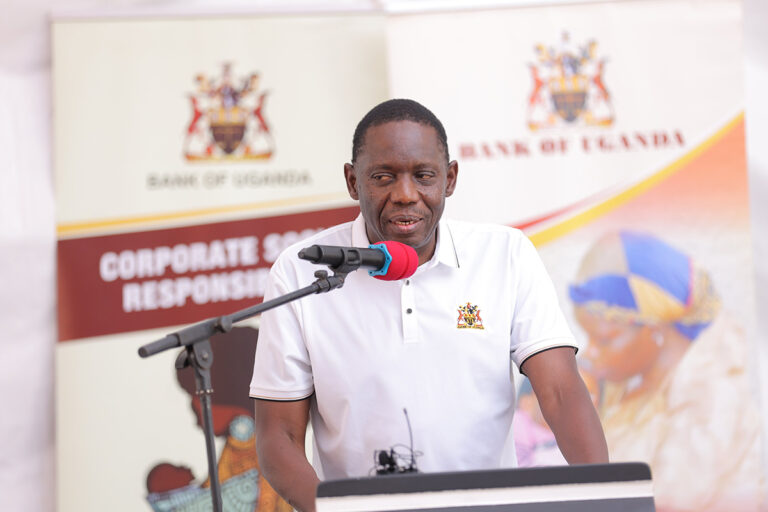Parliament’s Appointments Committee conducted a thorough vetting of Dr. Michael Atingi-Ego, the newly appointed Governor of the Bank of Uganda (BOU), and his deputy, Prof. Augustus Nuwagaba, in a closed-door session yesterday.
The vetting session, chaired by Speaker Anita Among, was attended by Deputy Speaker Thomas Tayebwa, Leader of Opposition Joel Ssenyonyi, and other MPs.
The committee scrutinized the nominees’ qualifications, experience, and strategies for addressing key financial issues facing the country.
Dressed in a grey suit and light grey shirt, Atingi-Ego arrived at Parliament around 9:00 AM and was briefly ushered into the Speaker’s waiting room before facing the committee.
Prof. Nuwagaba, wearing a dark blue suit, a white shirt, and a maroon necktie, later joined him as the two underwent simultaneous questioning.
Key Vetting Topics
During the session, MPs rigorously examined the nominees’ positions on monetary and fiscal policies, economic stability, internal controls, interest rates, and the supervision of commercial banks.
The discussion also covered macroeconomic management and measures to safeguard Uganda’s financial sector.
One of the most contentious issues was the recent UGX 6 billion fraud scandal at BOU. While many MPs sought answers from Atingi-Ego about the scandal, Speaker Among ruled the matter as sub judice and blocked direct inquiries.
However, MPs, including Tayebwa, Ssenyonyi, and Opposition Chief Whip John Nambeshe, rephrased their concerns to focus on preventive measures against future fraud.
Ssenyonyi, who led much of the questioning, pressed Atingi-Ego on how he planned to strengthen internal controls at BOU.
In response, Atingi-Ego assured the committee that the bank had already taken corrective action, including hiring a high-tech specialist to address security gaps.
He emphasized that BOU was not directly responsible for initiating the fraudulent transactions, thereby distancing the institution from blame.
Despite concerns over Prof. Nuwagaba’s lack of direct banking experience, the committee ultimately determined that both nominees were adequately qualified to lead the central bank.
Sources indicated that after over an hour of deliberations, the panel unanimously approved their appointments.
The vetting process underscored Parliament’s commitment to ensuring transparency and accountability in Uganda’s financial sector while reinforcing the need for stringent oversight mechanisms at the Bank of Uganda.

